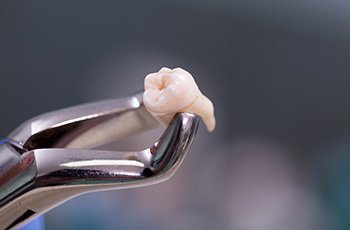Root Canal Therapy – Arvada, CO
Save Your Teeth, Stop Your Toothache
Over 15 million root canals are performed every year; despite that, there are still many misconceptions about the procedure. Many believe it to be an extraordinarily painful procedure when in reality it’s no more uncomfortable than placing a filling. It’d be more accurate to say that root canal therapy from our Arvada, CO dentist actually stops pain, because it allows us to remove the source of a toothache in just a single appointment. Call Dr. Paylor right away if you think your tooth is infected; root canal therapy may be your only option to save it.
Why Choose West Arvada Family Dental for Root Canal Therapy?
- Two Types of Dental Sedation Available
- Highly Compassionate Dental Team
- Locally Owned Dental Office You Can Trust
Do I Need Root Canal Therapy?

Root canal therapy is not the answer for every toothache. It’s only performed in situations where the tooth is still salvageable but the infection or dental damage is dire enough that a simpler treatment such as a filling wouldn’t be enough. The following symptoms often point to dental issues that require root canal therapy:
- Intense, throbbing tooth pain that does not go away after a day or two.
- A tooth that has suddenly become sensitive to hot or cold foods and beverages.
- Notable discomfort whenever you bite or chew.
- Notable swelling or redness in the gum tissue around the teeth in question.
- Pimple-like bump known as an abscess forming on the gums.
Any infection that has reached the point of needing root canal therapy is considered a dental emergency. Call our dental office immediately so that we can set up a same-day appointment to diagnose and treat your tooth.
The Root Canal Process

Steps will be taken to keep you comfortable while the root canal therapy is performed. Two types of sedation are available for anxious patients, and a local anesthetic will be applied in order to numb the mouth. Once you’re in a relaxed state, we’ll perform a brief examination of your mouth before moving forward with the treatment.
A hole is made in the enamel to grant us access to the pulp – the collection of nerve endings, blood vessels, and tissues that nourish the tooth. Infected pulp has to be removed entirely along with any other infectious material. The inside of the tooth is subsequently cleaned and sanitized so that there aren’t any harmful bacteria left behind to cause further infection and decay. Then the tooth will be filled with a biocompatible material. A crown will most likely be required to support and protect the weakened dental structure afterwards.
The Benefits of Getting a Root Canal

When you want to stop the pain of a dental infection without sacrificing the entire tooth, root canal therapy is often your best option. By saving the tooth, you can save yourself the time, money, and trouble that it would take to have it replaced. Also, by getting rid of the bacteria in the tooth, not only do we get rid of the current infection, but we stop it from spreading to the jaw where it could cause serious problems. And despite its reputation, the procedure is virtually pain free – especially in comparison to the discomfort that you would experience when having the tooth extracted.
Understanding the Cost of Root Canals

However much you need a root canal, you should still learn its price before you commit. You won’t have a sense of whether the treatment would fit your budget otherwise. That said, the cost of root canal treatment varies; you’ll need to see Dr. Paylor for an exact estimate. Our team can also find ways to make your care affordable, walking you through its price factors, dental insurance, etc. Simply keep reading or call us for further details!
Factors That Can Affect Root Canal Cost

Before Dr. Paylor can confirm your root canal’s cost, he must see the affected tooth. He and our team can then assess factors that affect the treatment price, including:
- The Tooth’s Type/Location – Depending on which tooth needs the root canal, your care will cost more or less. The reason stems from some teeth having more roots than others.
- Root Canal Complexity – The more complex a root canal becomes, the more expensive it will be. A simple one won’t cost much, but a complicated one will get pricey.
- Extra Dental Services – Sometimes, a patient needs a dental crown or filling after a root canal. Your treatment price will rise if that applies to you.
Is it Cheaper to Pull My Tooth?

A tooth extraction has a lower upfront price, but a root canal is still the more cost-effective choice. The latter option should save you more money in the long run.
Note that tooth loss – whether natural or forced – has side effects. As it goes untreated, it’ll create smile gaps that alter your bite and tilt other teeth until they fall out. Those spaces are also breeding grounds for harmful bacteria, making tooth decay and gum disease more likely. Plus, filling the gaps can get expensive and strain your budget.
Thankfully, root canals don’t have such side effects. That means getting one will save your tooth and prevent costly complications. Given those facts, you should opt for treatment before you need an extraction!
Does Dental Insurance Cover Root Canal Treatment?

The good news is that dental insurance often covers root canals. Since these treatments are major procedures, many dental plans will meet 50-80% of their cost. You’ll just want to confirm your policy’s benefits before you commit; they may differ from the average. If you’d like, our team can even help you contact your insurance provider.
Other Options for Making Root Canal Treatment Affordable

Even if you lack dental insurance, your root canal can be affordable. You just need to rely on West Arvada Family Dental’s helpful payment options! At our practice, we happen to offer:
- In-House Membership Plans: By paying a monthly fee, you can join one of our office’s in-house membership plans. Any of them would give you a 25% discount on root canal treatment.
- CareCredit Financing: Our practice works with CareCredit, a reputable 3rd party financial lender. They’d allow you to pay for your root canal in monthly installments with little to no interest.
Saving your infected tooth doesn’t (and shouldn’t) have to “break the bank.” In the coming days, just visit our office – we’ll help you finance your root canal treatment!
Root Canal FAQs
Do I Still Need a Root Canal if My Toothache Went Away?
If your once painful toothache seems to have gone away, you might think you no longer need a root canal. In reality, you need a root canal more than ever! When the infection advances to the point where the nerve of the tooth gets “killed,” it can no longer register pain. In other words, the infection is still present and progressing. So, don’t put off your appointment with our Arvada dental team.
Can I Take Antibiotics Instead of Getting a Root Canal?
No, antibiotics are not a suitable alternative to getting root canal treatment. Why? In short, the medication cannot reach the pulp of your tooth and, therefore, cannot eliminate the infection.
What Happens if You Wait Too Long for a Root Canal?
Simply put, the longer you wait to get a root canal, the more time the infection has to develop. There will eventually come a point where there will be no choice but to pull your tooth. Plus, your surrounding teeth and gums are more and more likely to be affected in the meantime. That’s why we recommend getting a root canal when we first recommend it – it’s the best choice for your oral health, your wallet, and your overall well-being.
Can Root Canals Be Prevented?
Fortunately, there are several relatively simple habits you can adopt to dramatically reduce your chances of needing root canal therapy. The first is implementing a solid oral hygiene regimen at home, which includes brushing, flossing, and rinsing with mouthwash daily. The second is coming to our office every six months for a checkup and cleaning (or sooner if you’re experiencing any abnormal dental symptoms). The third is quitting unhealthy dental habits, like biting your nails, chewing on ice, and smoking.
How Much Pain is Normal After a Root Canal?
Although you won’t feel anything more than some slight pressure from our team working while you’re in the treatment chair, it is normal to experience some soreness during the healing period. Don’t worry – there are several ways you can keep yourself comfortable, like sticking to soft foods, rinsing with warm saltwater periodically, and taking OTC pain medication as directed on the label. If the discomfort seems to persist after three days, then call our Arvada dental team.
Do Root Canals Make You Sick?
Back in the 1920s, a man named Dr. Weston Price said that it was better to have a tooth removed because root canal treatment didn’t remove all of the bacteria. To this day, people site this study as a reason not to move forward with this procedure. However, his research was poorly designed to begin with, and his findings have been debunked for several decades now. In other words, there is no scientific evidence linking root canal treatment with an increased risk of disease. The reality is that you’re more likely to get sick from NOT moving forward with the procedure to eliminate the diseased and infected tissue.

